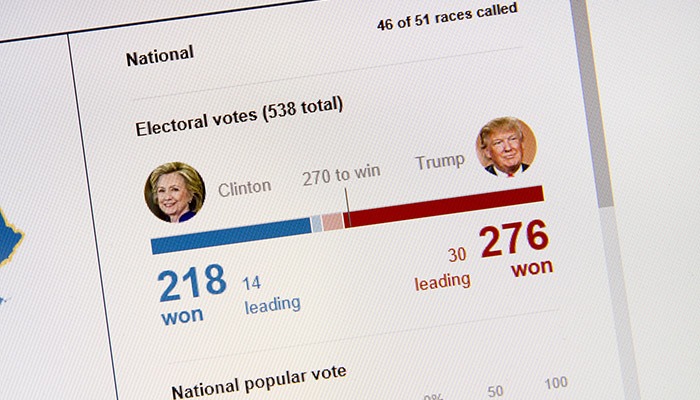Shutterstock
The popular vote won’t matter, at least that’s how it seems according to a federal appeals court ruling. That doesn’t mean you shouldn’t go out and vote, however.

A federal appeals court ruled on Tuesday that members of the Electoral College can vote for whomever they like. They do not have to abide by a state’s popular vote. It is these electors who cast the votes that actually count in a presidential election.
The ruling, handed down Denver, Colorado’s 10th Circuit Court of Appeals, said the state was wrong to strike the vote of “faithless elector” Michael Baca.
In the 2016 election, Baca, a Democrat, cast his ballot against the popular vote, writing in John Kasich. Hillary Clinton carried the state and earned its nine electoral votes. When Baca voted for Kaisch instead, the secretary of state replaced him with another elector who subsequently voted for Clinton.
In a split ruling between the three judges, the majority explained that “states do not have the constitutional authority to interfere with presidential electors.”
Said electors “exercise their right to vote for the president and vice president candidates of their choice.”
Apparently, this is the first time that a federals appeals court has ruled on whether or not electors can be required to vote a certain way.
Colorado is one of many states with laws that require electors to support whichever candidate wins the popular vote. The constitution, however, says nothing of this. The appeals court mentioned that several other faithless electors have also broken their pledges in the past.
Equal Citizens, the group that brought the aforementioned case to the appeals court, wants the issue reviewed by the Supreme Court prior to the 2020 election.
Because of demographic changes and how divided people have become, they believe this could be a slippery slope. The freedom of electors to cast their own votes is a very real issue that could impact future elections
“Whatever side you’re on,” said Harvard law professor Lawrence Lessig, “the question ought to be resolved before there is a constitutional crisis.”
Lessig is also the founder of Equal Citizens.
The Electoral College has been the subject of much contention, especially in recent years. It was created by the nation’s founders due to fears that there might be too much democracy. At the time, it was also beneficial to the Southern states and their slaveholders.
Resistance to the Electoral College has also grown significantly since the 2000’s presidential elections. That year, Al Gore lost the election despite winning the popular vote.
In 2016, a similar situation occurred, triggering even more support for the elimination of the current system. Donald Trump won the Electoral College, despite losing the popular vote by close to three million votes.
Several of this year’s Democratic candidates have called to abolish the Electoral College.